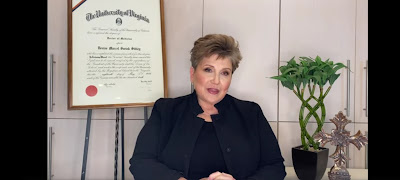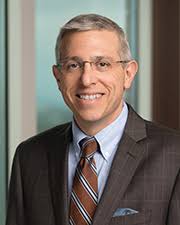Ballad Health and Employee Rights 💉 No Forced Vaccine 💥
Dr. Denise Sibley has bravely been in this fight for medical freedom and patient rights since the beginning of the pandemic.
She’s kept over 2k people out of the hospital with protocols that work. And now she’s trying to help healthcare workers forced with an impossible choice. As we went from two weeks to flatten the curve to two jabs of a liability-free product or lose your job.
Mr. Alan Levine,
November 19,2021
Ballad Health CEO
We, as employees and associates of Ballad Health, have been mandated to receive the “covid vaccine “ to retain our jobs or staff privileges by January 4, due to CMS stipulations which threaten to withhold funds from healthcare facilities. Many vaccine-educated employees have moral, religious and medical objections to receiving a coerced medical intervention.
Today, Governor Lee lifted the Tennessee State of Emergency, so there now no longer exists a rush for coercion to vaccinate for an illness that is now endemic and has been present for 21 months.
ALSO SEE RELIGIOUS EXEMPTION FEDERAL CODE BELOW.
The Tennessee Commissioner of Health, Lisa Piercy, testified on Tuesday 11/16/2021 before the members of the General Assembly that Tennessee is facing an impending healthcare crisis due to lack of healthcare workers.
We are asking that all religious and medical exemptions be honored by Ballad Health for employees seeking such exemptions to avoid a massive local healthcare delivery crisis
The Federal Register of the CMS document requires that religious and medical exemptions must be allowed for employees.
Page 61569 of Vol. 86, No. 212 of the Federal Register in the first paragraph reads:
“In other words, employers following CDC guidelines and the new requirements in this IFC may also be required to provide appropriate accommodations, to the extent required by Federal law, for employees who request and receive exemption from vaccination because of a disability, medical condition, or sincerely held religious belief, practice, or observance.”
Ballad does permit a religious or medical exemption to be submitted by an employee, but requires that an employee’s sincerely held religious belief be adjudicated or judged by a panel/committee and can be rejected. A panel decides if an employee’s sincerely held belief is sincere enough and is the final word on an employee's right of conscience; that is man acting as God. In addition, an employee’s request for a medical exemption for a condition which would be jeopardized by the genetic therapy shot must be subject to a panel’s decision, who are not authorized to treat this employee as no doctor/patient relationship exists.
Ballad employees and staff are opposed to several items in the “exemption forms” which we are requesting be remedied.
The form requires the signatory to non-voluntarily resign if the exemption is not accepted. This action is coercion and not truthful in that the signatory desires to work and is NOT RESIGNING- Ballad is forcing termination, i.e. firing the employee.
The form under “Declination of COVID vaccination” requires the employee to agree to “comply with all current and future COVID vaccine policies and COVID related safety policies”. This requirement is overly broad and unknown to allow the employee herein to consent-this could in effect imply consent for future vaccination, unreasonable demands under the guise of safety (testing every 15 minutes), etc. We would agree that proper wearing of PPE as required is consentable, if indeed you advocate that PPE is helpful in preventing disease.
The form under “Declination of COVID vaccination” unduly implies that the employee could be held liable for any COVID infection in the workplace: any patient infection, team member infection or family infection. That would hold the unvaccinated as responsible for any communicable disease that occurs in anyone, anywhere and that is absurd. PPE precautions in the healthcare setting mitigate this risk and have been mandated for this purpose, unless they indeed are useless.
The religious exemption form requires disclosure of an employee’s previous vaccination status which is irrelevant to this genetic therapy shot which utilizes an entirely novel genetic technology and has NEVER BEEN USED IN HUMAN MASS VACCINATION.
The religious exemption form requires a third party to be listed as witness as to the employee’s religious convictions . A sincerely held religious belief is not dependent on a third party or spiritual authority or pastor to validate. As a Christian, one’s relationship with God and one’s religious convictions are between their God and themselves exclusively.
NONE OF THESE REQUIREMENTS ARE CONTAINED WITHIN THE CMS Federal Register statement nor is it even suggested. The CMS document references EEOC Covid vaccination regulations .The EEOC enforces Title VII of the Civil Rights Act of 1964 (Title VII), which prohibits employment discrimination based on religion. This includes a right for job applicants and employees to request an exception, called a religious or reasonable accommodation, from an employer requirement that conflicts with their sincerely held religious beliefs, practices, or observances. The EEOC document under section L.1. states that no “magic words” are required for a relIgious exemption: “When making the request, employees do not need to use any ‘magic words,’ such as ‘religious accommodation’ or ‘Title VII.’ However, they need to notify the employer that there is a conflict between their sincerely held religious beliefs and the employer’s COVID-19 vaccination requirement.”
The Religious Freedom Restoration Act (RFRA), also protects employees' religious beliefs and describes employment rights and obligations under Title VII. The EEOC document The EEOC religious exemption form for its OWN governmental employees, referenced in section L of the document as an example for employers, has NO such requirement to resign. Section L.1. which deals specifically with the EEOC covid vaccination religious objections in no way supports the Ballad religious discrimination of employees who object religiously or morally to the “vaccine”.
There are many religious protections for American citizens: our Constitution, our First Amendment, Title VII of the Civil Rights Act, and the Religious Freedom Restoration Act as well as many circuit and appellate court cases.
A hospital that receives federal funds is obligated under federal funds to protect the conscience rights of a hospital employee.
We have committed our allegiance to God firstly and will not submit to an act that violates our God-informed conscience. We want to continue to care for patients as we have for some of us 30-40+ years; our commitment to patient care is not in question, we have suffered through this covid era diligently precisely because of our commitment to God and our God-given desire to render service to our brothers and sisters. We have suffered through covid illness ourselves and those of us who are Covid-recovered are now the most safe employees you have with NO RISK OF TRANSMISSION OF DISEASE. Why purposely create an even worse healthcare crisis by firing those of us willing to continue serving our fellowman?
Alan Levine, we ask that you honor our sincerely held religious beliefs/exemptions and medical exemptions regarding this novel gene therapy medical intervention, rescind immediately the adjudication process which places Ballad in the place of God over our stated sincerely held beliefs, remove the requirement of immediate involuntary resignation of an employee by submission and signature of the religious exemption form, and clarify the issues raised above regarding broad language and untoward employee liability.
Denise Sibley, MD, FACP
Representative of Ballad unvaccinated employees and staff.
Religious Exemption
"Regarding Biden’s vaccine mandates, there’s been a lot of confusion about religious exemptions. I know this is long, but if you have an interest, here is some valuable information; please feel free to share:
Title VII of the Civil Rights Act prohibits an employer from discriminating against its employees on the basis of their sincerely held religious beliefs. See 42 U.S.C. §2000e-2(a) (“It shall be an unlawful employment practice for an employer (1) to fail or refuse to hire or to discharge any individual, or otherwise to discriminate against any individual with respect to his compensation, terms, conditions, or privileges of employment because of such individual’s race, color, religion, sex, or national origin”). See also EEOC v. Abercrombie & Fitch Stores, Inc., 575 U.S. 768 (2015) (same).
Title VII defines “religion” as “all aspects of religious observance and practice, as well as belief.” 42 U.S.C. §2000e(j). Put simply, an employer violates Title VII if it makes employment decisions related to an employee based solely upon that individual’s sincerely held religious beliefs. Abercrombie & Fitch, 575 U.S. at 773 (“An employer may not make an applicant’s religious practices, confirmed or otherwise, a factor in employment decisions.”)
An employer is not permitted to determine which religious adherent has a correct understanding of religious doctrine or whether an individual’s sincerely held religious beliefs are shared broadly among members of his faith. As the Supreme Court has recognized, an individual’s “religious beliefs need not be acceptable, logical, consistent, or comprehensible to others in order to merit First Amendment protection.”
Thomas v. Rev. Bd. of Ind. Emp. Sec. Div., 450 U.S. 707, 714 (1981); see also Church of the Lukumi Babalu Aye, Inc. v. City of Hialeah, 508 U.S. 520, 531 (1993) (same).
Additionally, though membership in or adherence to the tenets of an organized religion is plainly sufficient to provide protection for an individual’s sincerely held religious beliefs, it is not a necessary precondition. See Frazee v. Ill. Dep’t of Emp. Sec., 489 U.S. 829, 834 (1989) (“Undoubtedly, membership in an organized religious denomination, especially one with a specific tenet forbidding members to work on Sunday, would simplify the problem of identifying sincerely held religious beliefs, but we reject the notion that to claim the protection [for sincerely held religious beliefs], one must be responding to the commands of a particular religious organization.” (emphasis added)). See also Office of Unlawful Denial of Religious Exemption from Mandatory Covid-19 Vaccine Policy Foreign Assets Control v. Voices in the Wilderness, 329 F. Supp. 2d 71, 81 (D.D.C. 2004) (noting that the law provides protection for “sincerely held religious beliefs,” “not just tenets of organized religion”).
In fact, the law provides protection for sincerely held religious beliefs even when some members of the same religious organization, sect, or denomination disagree with the beliefs espoused by the individual.
That some individuals may have sincerely held religious beliefs that differ from those espoused by others is irrelevant to whether an individual’s sincerely held religious beliefs are entitled to protection under Title VII. Indeed, [i]ntrafaith differences of that kind are not uncommon among followers of a particular creed, and the judicial process is singularly ill-equipped to resolve such differences . . . and the guarantee of free exercise is not limited to beliefs which are shared by all of the members of a religious sect. Particularly in this sensitive area, it is not within the judicial function and judicial competence to inquire whether the petitioner or his fellow worker more correctly perceived the commands of their common faith. Courts are not arbiters of scriptural interpretation.” 450 U.S. at 715-16 (emphasis added)."
 Reviewed by Diogenes
on
November 20, 2021
Rating:
Reviewed by Diogenes
on
November 20, 2021
Rating:











No comments: